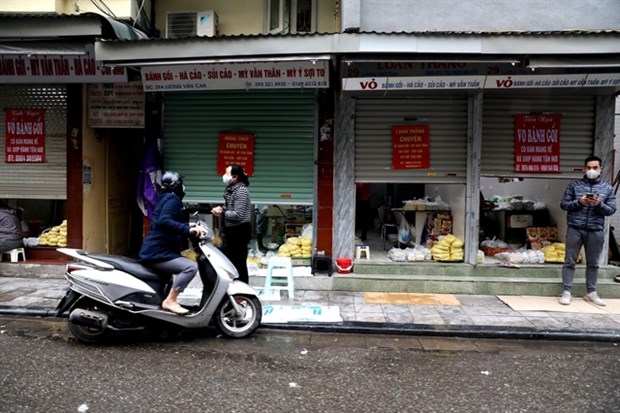 |
|
Experts have warned about a global wave of consumer default that's underway, beginning in China. Photo thebank.vn |
According to the latest report on labour and employment amid the COVID-19 pandemic, the Ministry of Labour, Invalids and Social Affairs said the number of people applying for unemployment insurance as of February 2020 stood at 47,164, an increase of 70 per cent over the same period last year.
Though the banking system has not recorded any cases of defaults related to credit cards, experts said banks should be cautious due to COVID-19.
They took China as an example. In China, where the epidemic has taken many lives and caused heavy losses in production and business activities in the first months of 2020, overdue credit card debt swelled in February by about 50 per cent from a year earlier.
Qudian Inc, a Beijing-based online lender, said its delinquency ratio jumped to 20 per cent in February from 13 per cent at the end of last year. China Merchants Bank, one of the country’s biggest providers of consumer credit, said last month it “pressed the pause button” on its credit card business after a “significant” increase in overdue loans. An estimated 8 million people in China lost their jobs in February.
Experts have also warned about a global wave of consumer defaults, beginning in China.
It is easy to get a credit card in Viet Nam, and a number of card holders, especially young people, are finding it difficult to repay their debts as their companies scale down business due to the pandemic.
Like other young card holders, an employee in Ha Noi, who declined to be named, borrowed money she thought she would be able to repay. Then the COVID-19 pandemic changed everything.
She said now all she thinks about is finding the money to repay the banks as she spent a lot on her three cards. All she had to do was swipe her cards to make a transaction so she did not know how much money was left on them, so she didn't feel sorry. It was not until the payment deadline arrived that that she realised how much she had spent.
To get a card, customers just need to visit a bank where they are guided through instructions and procedures, and they receive their card in a week.
Some banks even send staff out to help customers open credit card accounts.
Theoretically, the card limit would depend on the customers’ work or solvency, but increasing the card limit is very simple. Therefore, the number of young customers getting caught up in a spiral of spending is increasing during the pandemic, make the risk of defaulting higher.
According to data from the State Bank of Viet Nam, there were 99 million credit cards in the country by the end of last year. . — VNS

Cashless payments become popular amid COVID-19
Money can spread germs and bacteria, and amid the complicated developments of the novel corona virus Sars-CoV-2, many people have switched to cashless payments to protect them from unnecessary contact with contaminated money.

Deadlines for tax and land use fee payments extended
Prime Minister Nguyen Xuan Phuc on April 8 approved Decree No 41/2020/ND-CP on the extension of deadlines for tax and land use fee payments to support businesses suffering from the COVID-19 pandemic.
 Experts have warned that consumers may soon start defaulting on their credit card payments due to rising unemployment and salary cuts in many industries and sectors in the wake of the COVID-19 outbreak.
Experts have warned that consumers may soon start defaulting on their credit card payments due to rising unemployment and salary cuts in many industries and sectors in the wake of the COVID-19 outbreak.